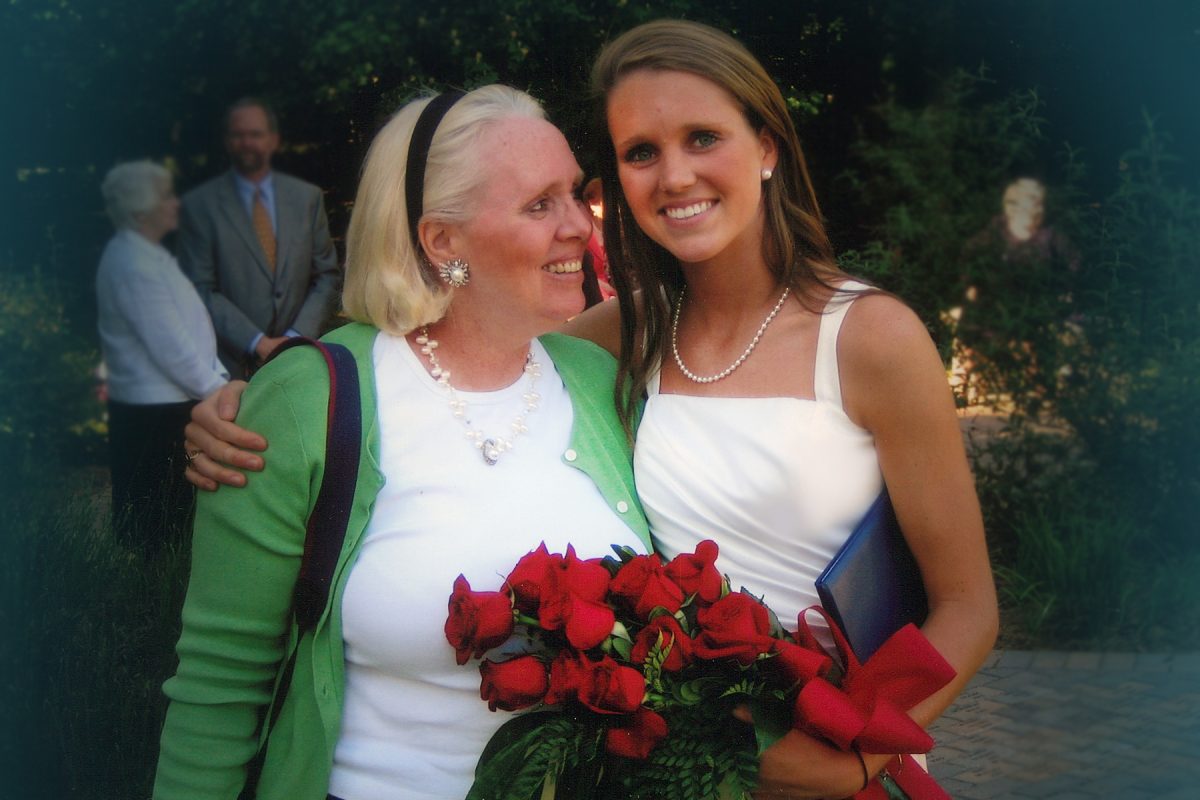
When Sharon Love lost her daughter, Yeardley, to relationship violence at the hands of her former ex-boyfriend—then University of Virginia All-American lacrosse player George Huguely V—at the outset, Love was determined to honor her 22-year-old daughter’s memory. Yeardley was also a student at UVA, and weeks away from graduating.
“We wanted to do something to honor Yeardley,” says Sharon, who, along with her daughter, Lexie Hodges, initially planned to work with Baltimore City kids to help them earn lacrosse scholarships. “It gave us purpose, too. It got us up and going. We didn’t know exactly how we were doing it, but we knew we were going to do something—it just kept morphing.”
Once Sharon and Lexie understood that Yeardley had, in fact, been a victim of domestic violence, their plans changed.
“Initially, we were not going to address the issue of domestic violence,” says Sharon, speaking from her Cockeysville home. “People came to us and said they hoped we’d address this issue, but we didn’t want to address it, because we didn’t feel we fell into that category. When we thought about domestic violence, we thought about a housewife with children and no way out—and that was not us.”
But what they discovered surprised them, and convinced them otherwise. “We gradually learned that 16- to 24-year-olds are most vulnerable,” Sharon says.
Just five weeks after Yeardley’s death, Sharon and Lexie co-founded the One Love Foundation, an organization that empowers young people to identify and avoid relationship abuse. But they were largely silent at the time, especially about the topic of relationship violence, for fear their words would be used against them in court.
Once Huguely’s trial was over in 2012—he was sentenced to 23 years in prison—the Love’s mission became crystal clear, and the voices of the usually soft-spoken women got louder.
On May 3, the 10-year anniversary of Yeardley’s death, their voices are still very much being heard. From online workshops to films, blogs, and videos, the foundation, whose materials are free and accessible to anyone, has one guiding light: to get students to learn the difference between healthy and unhealthy relationships.
The One Love Foundation was born in a small office in Towson with a handful of staff in June 2010. Now, it’s headquartered in New York City with six additional regional offices, 40 staff members, and 24,000 trained workshop facilitators across the country.
And what started as an act of love from a grief struck mother and daughter has grown into an internationally known organization that has reached more than one million students, as the One Love Foundation hits the decade mark this June.
“What we wanted to do with the foundation is save lives,” Sharon says. “We said, ‘If we’ve saved one life, it would be worth all of the work.’”
Likely, the Loves have saved thousands of lives, from another young woman at UVA who had an abusive boyfriend who obsessively stalked her, to a woman who broke up with her boyfriend after reading Yeardley’s story in People Magazine shortly after Yeardley was killed.
That said, the statistics remain daunting. More than one in three women will be in an abusive relationship, over one in four men, and over one in two trans or non-binary people, according to The National Intimate Partner and Sexual Violence Survey, the National Center for Injury Prevention and Control, and the Centers for Disease Control and Prevention.
Education, believes One Love, is the key.
“Understanding later that there were warning signs that no one understood, it became clear that there was a knowledge gap,” says chief executive officer Katie Hood. “That knowledge gap is fillable with the right kind of programming. If every person is understanding the signs, if every person knows how to talk about it, if you normalize the discussion, you make it something every kid talks about, it’s part of their lives. The idea is to empower a whole front line to help.”
Hood stresses that any relationship—even a healthy one—can benefit from the information that One Love is teaching. “In our hearts, we know that our younger selves would have benefited from that even if we were never in an abusive relationship,” she says.
And now, in the times of the COVID-19 crisis, with relationship violence on the rise across the globe, it’s a topic that’s more critical than ever.
“COVID-19 is highlighting the magnitude of this problem that most of us prefer to look away from,” Hood says. “No one wants to think that someone they love can hurt them. It has been gratifying to hear from people who got out of abusive relationships because of our education who are now looking back and saying, ‘Oh my god, if I was sheltering in place with this person I have no idea what my life would be like right now’—but the work remains as important as ever.”
Hood adds that, as stay-at-home orders remain in place, One Love has seen more than 200 people—scattered from Montana to Hong Kong—participate in the organization’s education programs in the past few weeks.
When they get older, Lexie will surely impart the lessons she has learned to her girls, McKenzie, 3, and Charlotte, 1, about the warning signs of potentially deadly relationships—signs that she and Sharon didn’t recognize at the time
“Always have your eyes wide open because sometimes you are seeing things that you don’t notice as in bad of a light as you should,” she says. “Always be more aware and observant about what you are seeing and follow your instincts. If it doesn’t look or sound right, it’s not.”
“When we met [George,] he was laidback,” recalls Sharon. “We were clueless. We had no idea that there was a monster brewing underneath.”
Despite the unimaginable loss of her younger sister and best friend, Lexie, along with Sharon, has tried to stay positive. “From day one, what helped us not cave into everything that was going on and stay strong was staying positive,” she says. “That’s the type of person that Yeardley was—she was selfless, funny, outgoing, enthusiastic, vibrant, and positive. Her spirit has guided everything we’ve done.”
Sharon, a retired teacher, finds it ironic that Yeardley never liked the spotlight.
“Her birthday parties were a nightmare because she didn’t like to be the center of attention,” Sharon shares. “She was like, ‘When will this be over?’ So now I think, ‘Wow.’ I’m not sure what she thinks of the attention she is getting now. On the other hand, I think she is so grateful for keeping her memory alive in such a wonderful way. I’m sure she’s just beside herself, overwhelmed by the kindness and generosity of people and that maybe she spurred this movement.”
